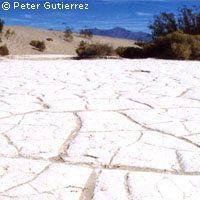Commission welcomes latest IPCC report
The European Commission has welcomed the latest report of the Intergovernmental Panel on Climate Change (IPCC), pledging to support further research in the field and work towards a new global climate agreement. 'The Fourth Assessment Report is a milestone in our scientific knowledge about climate change and the grave threats global warming poses to the planet,' said Stavros Dimas, the EU Environment Commissioner. 'The report's findings amount to a stark warning that the world must act fast to slash greenhouse gas emissions if we are to prevent climate change from reaching devastating levels. The good news is that it also shows that deep emission cuts are both technologically feasible and economically affordable.' Speaking at a symposium on the IPCC and European climate research, EU Research Commissioner Janez Potocnik highlighted the EU's scientific commitment to the IPCC process. 'European research teams and projects have played a major role in providing the scientific knowledge and performing the analyses within the IPCC framework,' said the Commissioner. 'Conversely, the IPCC process has helped to identify major areas of scientific uncertainty and social and political relevance. These are used to direct the research efforts of the European Community.' Some 40% of the lead authors of the latest report come from European countries, and many of them are actively involved in EU-funded projects covering issues as diverse as the development of climate models and assessing the costs and effectiveness of mitigation and adaptation policies. Mr Potocnik also underlined the importance of the knowledge gleaned from climate research for a whole range of policy areas. 'Armed with the appropriate knowledge we can design and take actions to slow down and to cope with the effects we are experiencing and predicting,' explained Mr Potocnik. In the environment field, climate change affects sustainable development policies which must take into account the effects of a changing climate on soil, water, air quality, biodiversity and health. These impacts also have an effect on agriculture and fisheries policies. In the energy sector, climate change is driving how we meet our future energy needs, leading to investments in renewable energies and in hydrogen and fuel cell technologies. The transport sector is also affected, as the Commission seeks to reduce the levels of CO2 emissions from cars and other means of transport. 'This same issue affects our relationships with our international partners,' continued Mr Potocnik. 'I am thinking here about our negotiations for a post-Kyoto agreement. I am thinking also of our planning for aid and development, as well as our policies on trade.' Climate change has always been a major priority of the EU's research framework programmes. In the Seventh Framework Programme (FP7), the emphasis is on integrated research. 'This will enable us to better understand the causes and future evolution of changes, determine current and future impacts, and develop effective adaptation and mitigation measures,' commented Mr Potocnik. Meanwhile both Commissioners promised that the EU would play an active role in plans to draw up a new global climate agreement. 'This synthesis report is vital reading for decision-makers everywhere ahead of the UN climate change conference in Bali starting in just over two weeks,' stated Commissioner Dimas. 'The global community must respond to this scientific call for action by agreeing in Bali to launch negotiations on a comprehensive and ambitious new global climate agreement. Efforts will be needed by all major emitters if we are to have a chance of controlling climate change before it is too late.' Currently the EU has pledged to reduce greenhouse gas emissions by at least 20% below 1990 levels by 2020. It aims to do this by increasing the use of renewable energy, boosting energy efficiency, strengthening the emissions trading scheme, limiting CO2 emissions from cars, and setting up a framework for introducing carbon capture and storage in power production.



